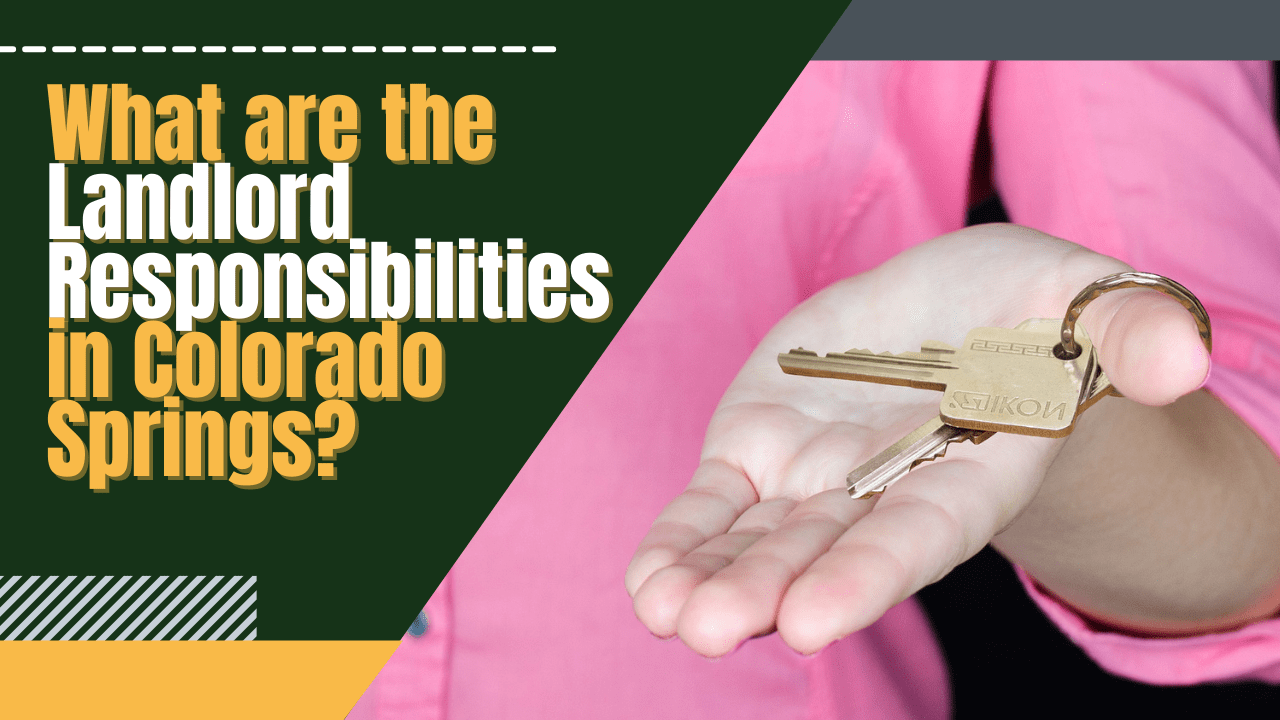
A landlord has a lot of responsibilities when renting a property out to a tenant, and in Colorado Springs there are a few legally required actions that must be taken. Landlord-tenant law in Colorado covers everything from what you ask during the application and screening process to how and when you can raise your rent. If you don’t comply with all these responsibilities, you can find yourself facing legal disputes and financial penalties.
If you’re new to owning a rental property or you just want to make sure you’re covering all your bases, pay attention to these important factors.
Provide a Safe and Habitable Home
Landlords in Colorado Springs are legally required to provide rental homes that are habitable. This falls under a statewide legal doctrine known as an “implied warranty of habitability.” Not only do you have to provide a habitable and safe property at the beginning of a lease agreement, you also must maintain it. If the tenant reports that the heat isn’t working in the middle of winter and you wait a few days to fix it, you could find yourself in some trouble. Tenants in Colorado are entitled to withhold rent until those repairs are made.
Make sure you’re prepared to meet this responsibility. Not only do you need to be responsive, you also need to have a team of vendors ready to make any necessary repairs. Establish relationships with plumbers, electricians, roofers, and HVAC technicians so you’ll have professional repair people ready to respond if something goes wrong.
Follow all Federal, State, and Local Laws
The federal fair housing laws prohibits discrimination against tenants based on race, religion, national origin, sex, familial status, or disability. Colorado state law goes a few steps further and also prohibits housing discrimination on the basis of sexual orientation and gender identity.
You’re also responsible for following Colorado’s security deposit laws, eviction laws, and regulations that address rental increases. For example, you’re required to provide 10 days of notice before you raise the rent, and you must return the security deposit within one month of the move-out date unless your lease agreement provides for exceptions.
Execute and Follow a Lease Agreement
Landlords in Colorado Springs are also responsible for creating and signing a lease agreement. This is a legally enforceable contract that must be taken seriously. It should include every detail pertaining to your property and the way your tenant is permitted to use it. Most lease agreements include the rent collection policy, process for reporting maintenance, and a list of rules and regulations that apply. In Colorado, you’ll also have to include mold disclosures and lead-based paint addenda. It’s your responsibility to find a lease agreement that’s specific to Colorado and your property.
Provide Notice before Visiting the Property
 Tenants are entitled to their privacy and the quiet enjoyment of their rental home. Owning the property does not give you the right to show up unannounced whenever you feel like it. Tenants will notice if you’re slowly driving past the home every few days. Don’t be a nuisance.
Tenants are entitled to their privacy and the quiet enjoyment of their rental home. Owning the property does not give you the right to show up unannounced whenever you feel like it. Tenants will notice if you’re slowly driving past the home every few days. Don’t be a nuisance.
While there’s no legal requirement in Colorado Springs for the amount of notice you have to provide, we recommend at least 24 hours of notice in writing. Send an email or a letter letting the tenants know that you need to get inside for a maintenance check. Hopefully, you have a good relationship with your tenants and you’ll be able to talk about it in advance.
This is by no means a comprehensive list of your responsibilities. If you’d like to talk more about what’s involved in owning Colorado Springs rental property, please contact our team at Muldoon Associates.
